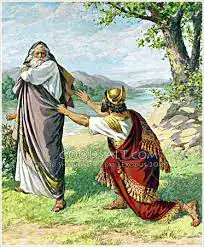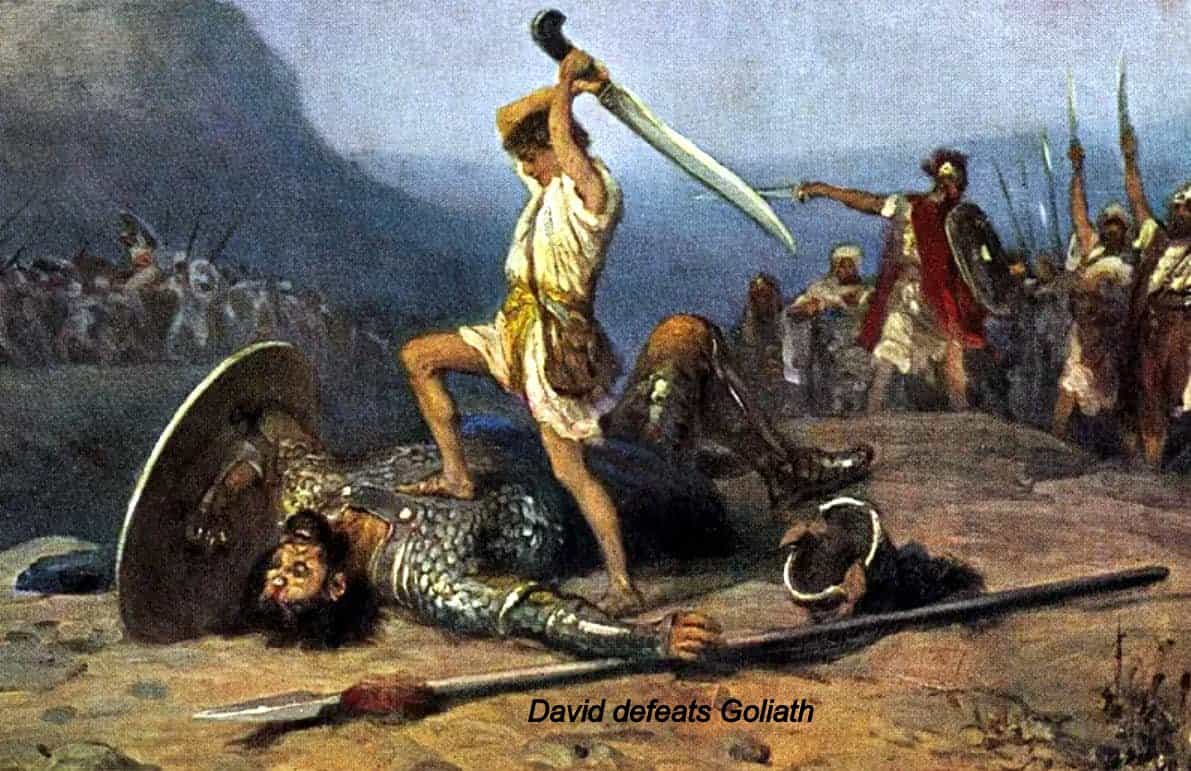

Hebrews call for a king
Samuel reluctantly chooses Saul with warnings.
In Chapter 8 of the First Book of Samuel, the people of Israel tell their judge, Samuel, that they want a king to rule over them. The judges were religious leaders, supposedly ruling on God’s behalf, but the people of Israel had had enough of this theocracy. “We want a king to be over us,” they say. “Then we will be like all the other nations, and our king will judge us and go out before us and fight our battles.” Samuel warns them that their king will do other things, too: He will conscript their sons into war and take their daughters to be his perfumers and bakers. He will take the best crops from their fields and vineyards. He will tax them a tenth of their grain, their animals, and their servants. And if the people cry out, in the end, against this tyranny, “the Lord will not hear you in those days, because you chose a king for yourselves.”
The people choose one anyway, and the rest of the history of Israel plays out. Again and again, the people pursue earthly power and turn away from God. Often they confuse the two. Eventually, God stages an intervention, appearing himself in human form, to turn things around. But he does not appear in the form of a king or a judge or a procurator or a wealthy aristocrat. He appears as a barefoot carpenter in a backwoods province of the Roman Empire, he spends his time with the weak and the despised, wandering in the desert and the countryside, through small towns and villages. When he finally goes to the city, to the civilized center, it tortures and kills him.
At the very least, I think we can say that this God of ours has an ambivalent relationship to humanity’s earthly power structures. At no point does he enthusiastically embrace them. Often he rejects them, and sometimes he destroys them. The reason is always the same: They take humanity’s gaze away from him and redirect it towards themselves. People forget, again and again, that in Christopher Lasch’s words, “God, not culture, is the only appropriate object of unconditional reverence and wonder.”
What we call “religion” is perhaps best described as the collection of tools and mechanisms that we use here on earth to direct that “reverence and wonder” towards its proper end: God, not culture.
-Paul Kingsnorth in an essay entitled “Against Christian Civilization“
Saul falls to David, ascent to full kingship, consolidation of kingdom, sin with Bathsheba
David’s faithfulness
Steadfast testimony of God’s grace. Wrote half of the 150 Psalms.
Solomon
Temple built, kingdom prospers, his weaknesses
Wisdom, wealth, women
Solomon’s Wisdom
1 Kings 4:29-34 – “And God gave Solomon wisdom and understanding beyond measure, and breadth of mind like the sand on the seashore, so that Solomon’s wisdom surpassed the wisdom of all the people of the east and all the wisdom of Egypt. For he was wiser than all other men, wiser than Ethan the Ezrahite, and Heman, Calcol, and Darda, the sons of Mahol, and his fame was in all the surrounding nations. He also spoke 3,000 proverbs, and his songs were 1,005. He spoke of trees, from the cedar that is in Lebanon to the hyssop that grows out of the wall. He spoke also of beasts, and of birds, and of reptiles, and of fish. And people of all nations came to hear the wisdom of Solomon, and from all the kings of the earth, who had heard of his wisdom.”
Was God aloof from David and mankind?
Psalm 23 – The Lord is my shepherd; I shall not want. He makes me lie down in green pastures. He leads me beside still waters. He restores my soul. He leads me in paths of righteousness for his name’s sake. Even though I walk through the valley of the shadow of death, I will fear no evil, for you are with me; your rod and your staff, they comfort me. You prepare a table before me in the presence of my enemies; you anoint my head with oil; my cup overflows. Surely goodness and mercy shall follow me all the days of my life, and I shall dwell in the house of the Lord forever.

